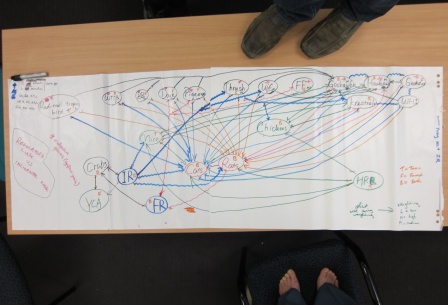By: Yi Han (with contributions from Hao Ran Lai, Anna Csergo, Rob Salguero-Gomez, Nathalie Butt & Yvonne Buckley)

Don’t be a stranger: PhD candidate Fleur Maseyk (UQ, Brisbane) provides her supervisor Asst/Prof Marit Kragt (UWA, Perth) with a monthly progress report. With three remote supervisors, Fleur says these regular meetings have been essential in keeping everyone up-to-date and on track and the regular encouragement and guidance is also invaluable. Screenshot by Fleur Maseyk.
What happens when you or your supervisor goes away for long periods of time? This happens more often than you’d think, with sabbaticals, fieldwork, international students and regular travel as common features of the student-supervisor relationship. Our lab is now split between Australia and Ireland. Indeed, it would be difficult to get two locations further away. Thus, before the split, we spent some time talking through how to deal with remote supervision. We pooled our ideas about what the problems are and what we have found to work.
When you are away from your supervisors, they are typically not reminded of your existence. You don’t see them in the corridor and can’t catch up with them at morning tea or group meetings. This means your supervisor may forget to tell you about opportunities for conferences, interesting new papers or fleeting ideas that might prove valuable. It also means they may be less likely to feel the same urgency about reading/commenting on your work as they would if you were in the same place.
To solve these problems, we have the following suggestions:




